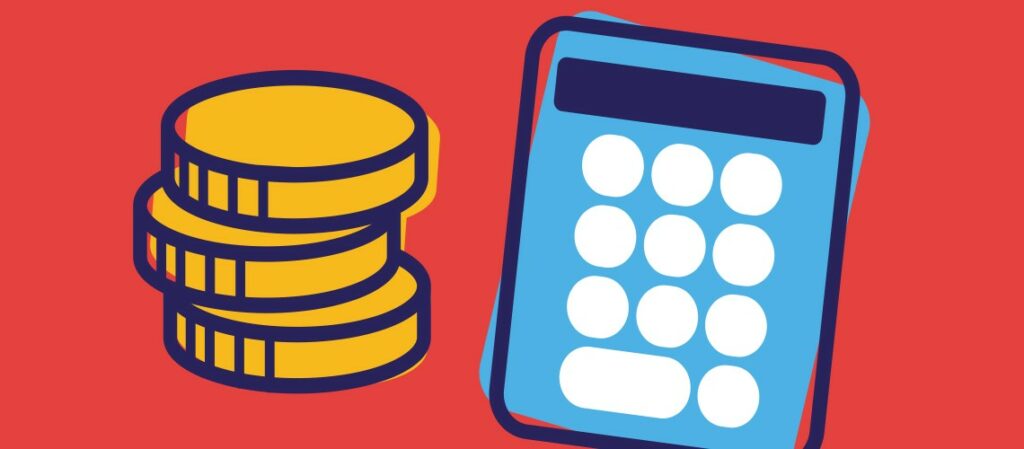Money matters
Phrasal verbs are the bane of non-native learners of English! They are commonly idiomatic in nature and can have several meanings, depending on the context. To be able to understand native speakers of English in daily conversation, it will be necessary to get to grips with them.
In this short article, we introduce some useful phrases used in daily English conversation which are particularly salient at the moment – a period of inflation and economic downturn where people are noticing, commenting on, and struggling with price increases.
The cost of living – as it is commonly referred to in the media – is a talking point for many people as they reflect on its impact at a personal level. We present 5 phrasal verbs to describe this negative impact, together with 3 other common ‘money’ expressions in English.
Phrasal verbs
1. We just about get by.
“To get by” (as in “we get by”) suggests that a couple (or family) have enough money to pay for everyday expenses. However, it has a negative feel to it, as if to suggest that although the bills are covered, there is little (if any) leftover money for luxury purchases or for savings.
By adding “just about”, it highlights this extreme situation. It suggests that we can afford essential purchases, but nothing more.
2. The weekly shop now sets me back £150.
This colloquial expression is used as an alternative to “it costs me £150”.
The verb “cost” is neutral with no indication of the speaker’s perception of value.
“set me back £150” adds the nuance that this an undesirable amount of money to spend: either it feels too expensive OR it’s an unforeseen expense that you regrettably have to pay, such as repairs to a faulty car.
“the weekly shop” refers to the weekly trip to the supermarket to buy food.
3. I’m eating into my savings more than I want to.
This expression has the similar nuance of regret that “sets me back” has. But the focus is on what spare cash (or savings) we have and how we reluctantly have to starting using it to pay for things.
4. We need to rein in our expenses/spending.
“to rein sth in” is to get something back under control, so that the situation becomes manageable.
In this context, the budget planner (head of family or accountant of a business) is looking at how much money is being spent and realises that cuts in spending need to be made. Otherwise, financial difficulties could become a reality.
5. How the other half live! They continue to rake it in.
When ordinary people either criticise or envy the substantial earnings of others (often when the perception is that most people are struggling financially), we can use this expression.
“to rake” is a horticultural word and one way to memorise the idiom is to imagine an abundant harvest with more crops than one person could possibly need. “it” refers to money (as if somehow an abundant crop), and so we are saying that someone is earning a lot of money.
“the other half” refers, in this context, to rich people, from the perspective of people who don’t consider themselves rich.

Other expressions to signal hard times
6. Money is tight at the moment.
This means that there is not enough money and that this situation is causing problems to manage.
7. We barely have enough to make ends meet.
This expression is similar to “we just about get by”.
8. Everything these days costs a fortune.
“to cost a fortune” is to say that something is perceived to be very expensive.
To say that “everything” costs a fortune is an exaggeration, but is a type of hyperbole that is common in daily conversation to express frustration at the lack of control over price increases.
Interested in learning more about British English?
As a school of English in London, we specialise in private lessons
– both face-to-face and online.
We offer a free consultation to all students. Please click here to book your free consultation.
If you are looking for a tailor-made private English lesson with flexibility and a high quality native English teacher, PS English can help you.
We look forward to hearing from you!

